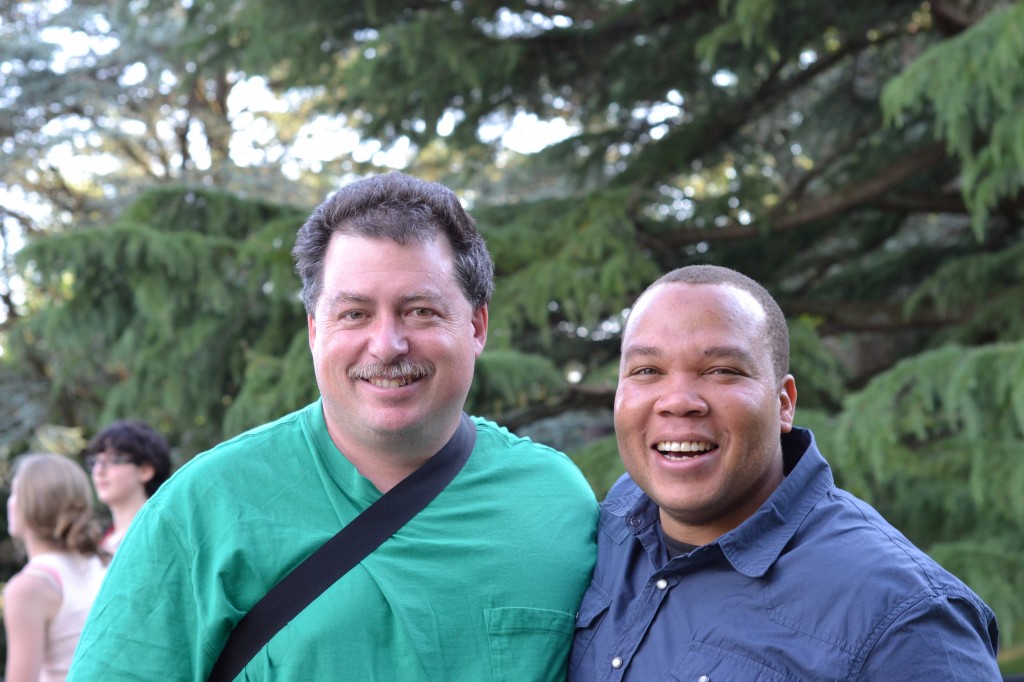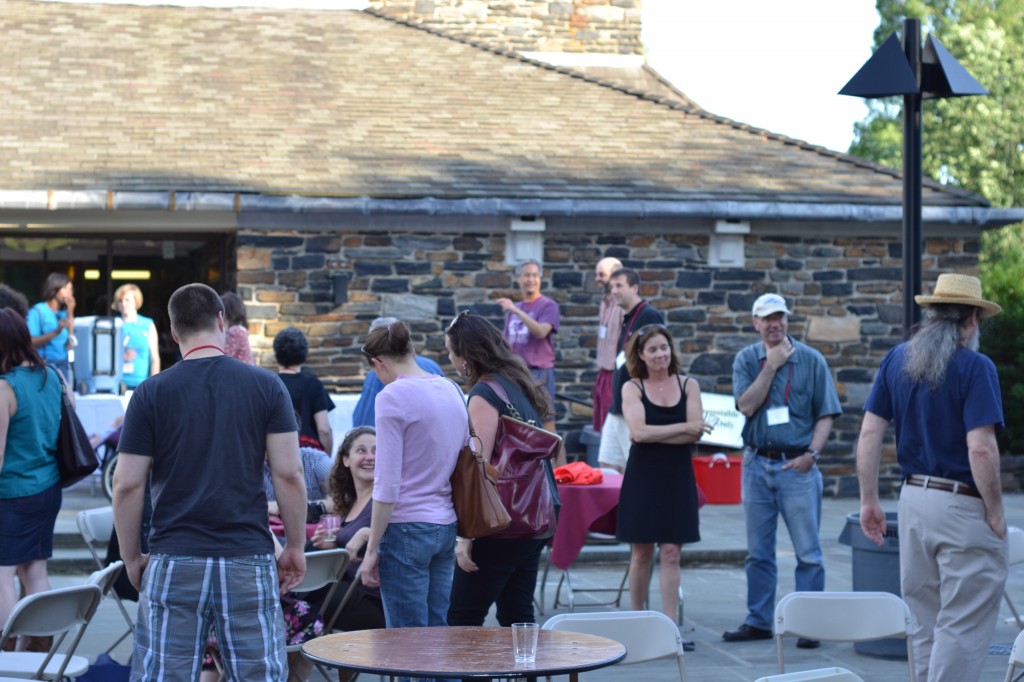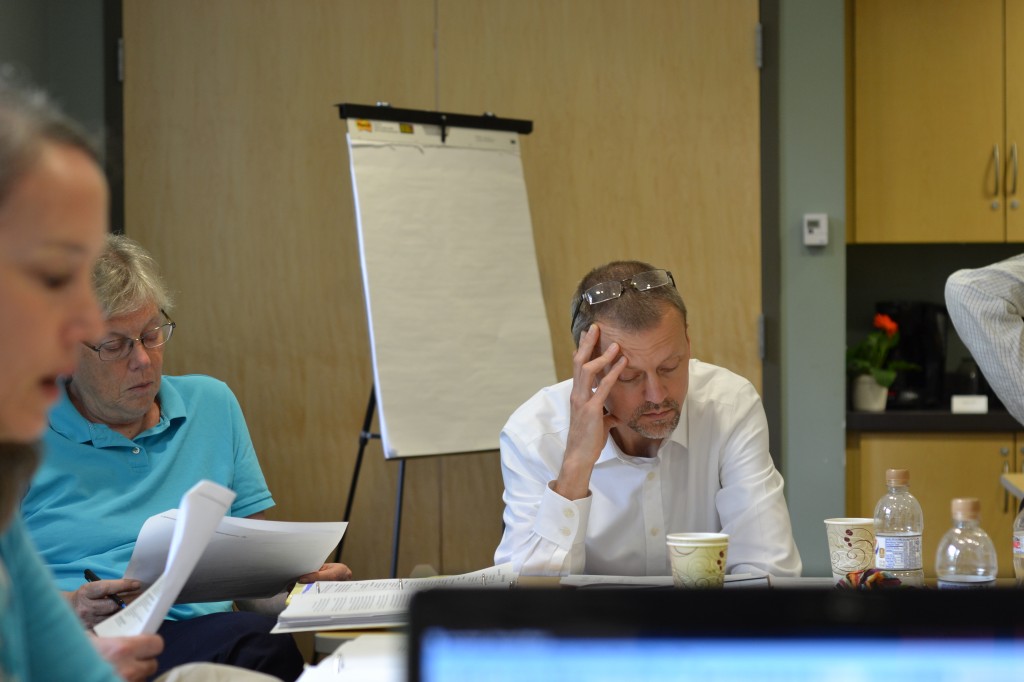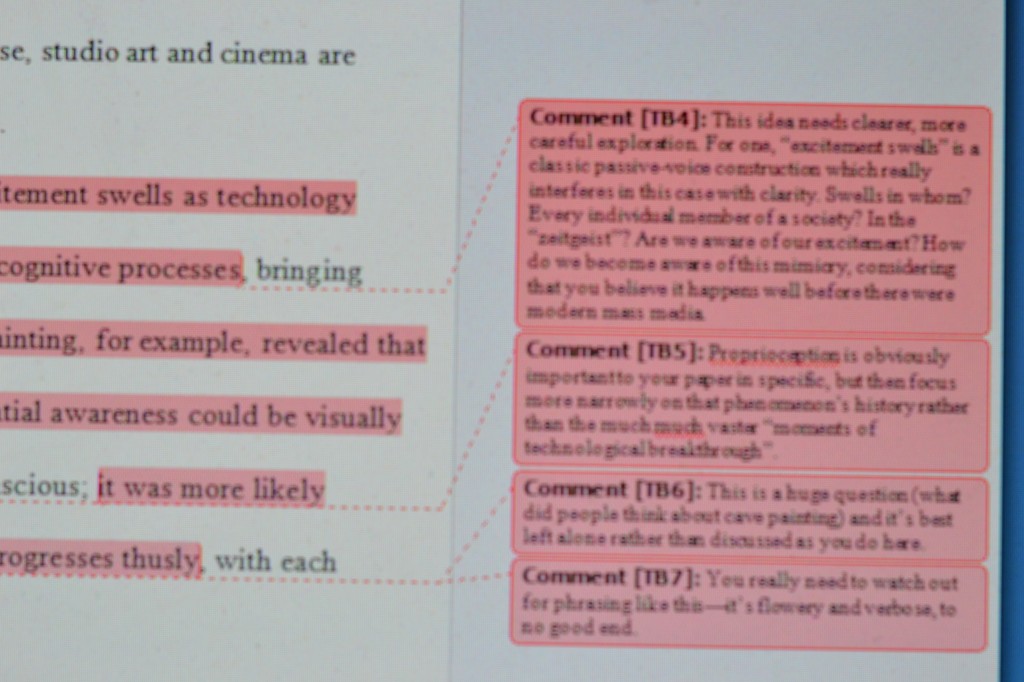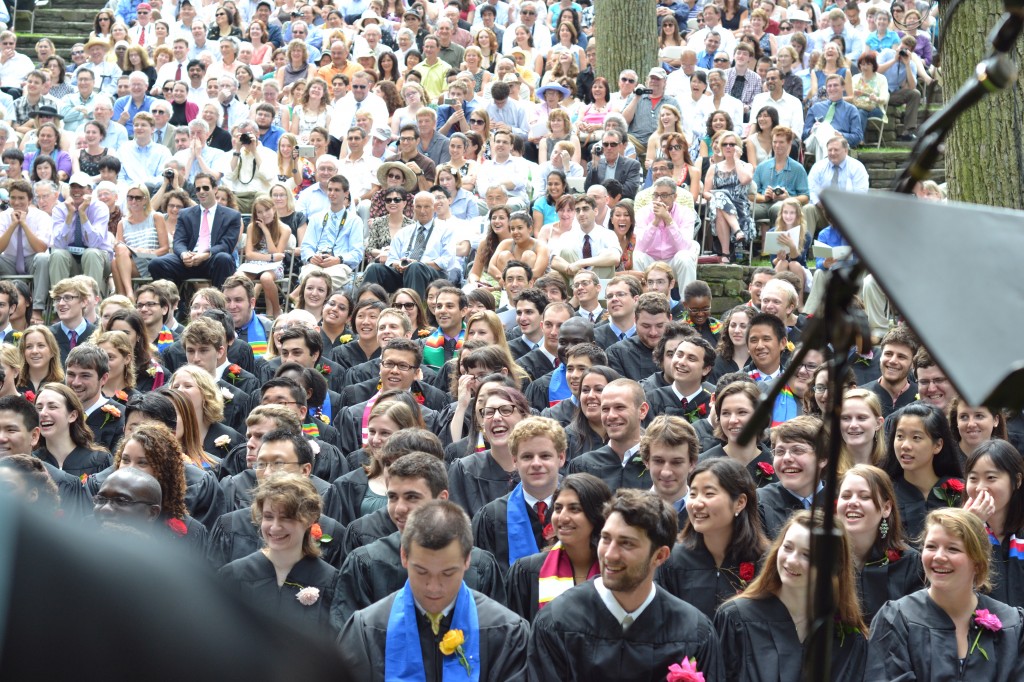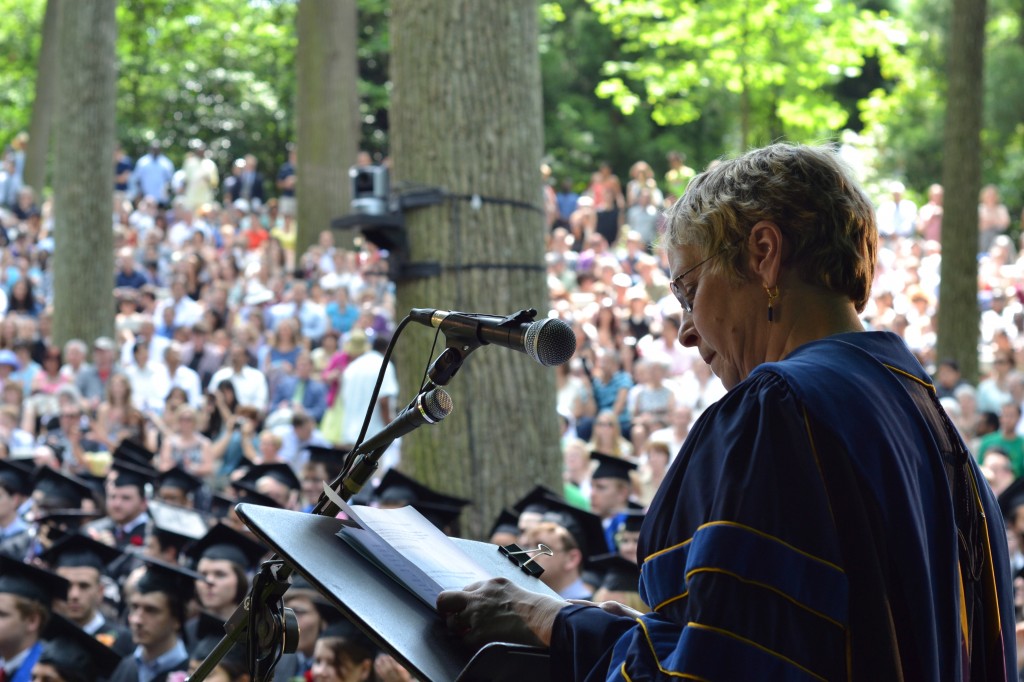The concept of fieldwork fascinates me and vexes me all at once. I didn’t really grasp how much fieldwork outside of formal archives is a significant part of the study of modern African history until I was several years into my graduate work. I wish I had understood that more clearly, because I’ve never felt particularly comfortable doing ethnographic work or collecting oral histories. That is sort of the point of ethnography in many ways, however, and a source of the strongly felt view that fieldworkers should never try to be “a fly on the wall”.
That view accidentally underscores a big problem, however, that the general concept of fieldwork, the specific methodology of ethnography, and the disciplinary commitments of anthropology often get badly entangled with one another.
Fieldwork is a big tent, or ought to be. In academia alone, fieldwork is not the same thing as ethnography. Linguists who collect language samples are fieldworkers. Social scientists who do survey research are fieldworkers. Development economists or technologists who advise “bottom-up” community development projects have a fieldwork practice. Scientists who work with “vernacular science” have a fieldwork practice. Historians who go into archives, archaeologists who go into dig sites: they all have to go to some “other” place, they all have a sense that “being there” is required for the creation of knowledge.
Some years ago, I got tangled up in a project with a foundation that aimed to convene a discussion about the status and future of fieldwork practices. I had the idea that we ought to bring together academics whose disciplinary practices centered on fieldwork with professionals outside of academia whose work also relies on the idea that you must go somewhere else besides an office, into the field, in order to carry out your work, where the place and people there are what the work is all about. I thought of a number of examples: journalists, travel and fiction writers, landscape artists, police, spies, focus-group market researchers. In some cases, these other professions have methodologies that have strong resemblances to standard scholarly practice in almost every respect. In other cases, the methodology is similar but the ethics governing that methodology are very different: journalists on long assignment and anthropologists can be doing very similar things but with a very different sense of purpose and professional constraint. And in still other cases, such as creative work that depends on having a sense of place, the methodology might be extremely difficult to describe in any straightforward or disciplinary way.
This struck me as an important conversation to have in order to give academics a sense of the potentiality of fieldwork, and in particular, to dislodge anthropology from its sometimes-too-possessive relationship to fieldwork. Even though ethnography is arguably the most dominant mode of fieldwork, it’s important to remember that ethnography and anthropology are not identical. More importantly, it’s important not to view anthropology’s specific traditions of ethical practice as necessary preconditions of fieldwork legitimacy. My desire to be in a “bigger room” for this discussion was partly occasioned by a previous experience in judging a grant competition in which anthropologists (folks whose work and insights I really appreciated and admired) really casually disparaged or dismissed proposals by humanists who wanted to go into a field setting in order to gain interpretative insight for textual criticism or who were seeking inspiration for creative work, largely on the grounds that these proposals had lazy or insufficient fieldwork. The same judgments were sometimes in evidence about survey research or other forms of non-ethnographic fieldwork in the social sciences.
Return to the view I cited above: that fieldworkers should never be a “fly on the wall”. As a dictate about fieldwork as a whole, that shows a characteristic conflation of fieldwork with ethnography, and a classic mismapping of anthropology’s specific ethical vision onto the whole of what might constitute “fieldwork”. Ethnography absolutely requires the fieldworker to be present, visible and participating. It produces knowledge through dialogue, through the insertion of the fieldworker into the lived situation of the communities and institutions being studied. But there are things about places and people that a silent, withdrawn, surveilling observer can learn as well. There’s a huge body of compelling fiction and essays by authors who largely watched from afar, looked on in silence, lived at a remove from the subject of their writing. You could recapture that as “participant-observation” if you like, in the sense that even someone sketching and commenting and looking from a window or a cafe table is socially present, but this is still not the active role that standard-issue descriptions of ethnography expect from the researcher. Other practices of surveillance have their own limits: experts in espionage know that there’s only so much you can learn through intercepts of communication, technological and human observation from afar, and so on. Eventually a spy or a cop has to talk to people, engage in dialogue, ask questions. But the point is that the fly on the wall approach does yield meaningful information within its own constraints, just as participant-observation in a context where the researcher is socially invisible early in their work is very different from work where the researcher is visibly a stranger at every single moment of their work.
The big tent conversation I proposed never went anywhere, not so much because the other participants opposed it but because they found it so odd as to not be worth opposing. That said, I think there are some very interesting conversations happening within anthropology and across the disciplines about the status and future of fieldwork at the moment. Luke Eric Lassiter’s Chicago Guide to Collaborative Ethnography is one great example. The concept of a collaboratory in ethnographic or fieldwork research seems so powerful and so natural once you read through Lassiter (and so embedded, in his view, in a particular scholarly tradition) that any opposing practice of the ethnographer as solitary, romantic, original reader and writer of “other cultures” instantly is shoved out into the outer darkness of bad practice. And yet, there’s some unfinished business here even in the terms of the model that Lassiter sets forth, some examples of how anthropology’s obsessive regard for combining ethical purity with scholarly rigor gets in the way of opening up a collaborative vision of fieldwork.
Chapter Seven deals with the question of “accessible writing”, for example, but I found the discussion mostly reduced to standard (if sound) advice about writing clearly. Writing alongside “natives” in a lot of cases should raise questions about whether writing is at all the proper form for the dissemination of ethnographic knowledge. Depending on who is in the field and where the field is, recorded speech, film, web-published archives of material artifacts and ephemera, (maybe in the style of the Prices’ Equatoria, which Lassiter mentions), cheap periodical literature, you name it, are likely to be more appropriately collaborative modes of expression than the scholarly monograph. And writing well in a clear, crisp, direct Orwellian style might not serve many discursive communities well at all, might not be at all what they expect or prize in written communication. Lassiter points out that scholars want to sound like intellectuals should and that consultants (as he refers to the folks usually called informants) expect that they also should sound intelligent. And yet when we read literature or essays which are meant to convey a sense of place, we often demand versilimitude, that the dialog “sound” as it ought.
As Lassiter points out, first-person writing is often more accessible and more persuasive when it is about experience and place. Maybe that’s an opportunity to circle around again and ask whether there is still a role for sharply written non-collaborative ethnography, for work where an observer underscores their distance from or even antagonism towards a community that they’re investigating. I’ve always seen Buzz Bissinger’s Friday Night Lights as a fundamentally ethnographic work. As I read it, Bissinger sees his first obligation as the delivery of the unsparing truth about the community he’s observing. The collaboration came later, when Bissinger goes on to talk with the people of Odessa about their unhappiness and discomfort with the picture he drew of them.
James Faubion and George Marcus’ edited collection Fieldwork Is Not What It Used to Be: Learning Anthropology’s Method in a Time of Transition is also really useful think-piece on these issues (though the title is a minor example of the confusion between fieldwork, ethnography and anthropology that I’ve been discussing). In many ways, I think Faubion and Marcus’ contributors in their projects and modes of expression are more clearly grappling with the problem of how to deliver or disseminate fieldwork research and to re-situate our sense of what constitutes a field than Lassiter is. I don’t suppose readers of this blog or of my published scholarship will be at all surprised that the George Marcus & Michael Fischer approach to fieldwork and ethnography is appealing to me.
More importantly, they go right to the heart of my concerns as expressed here. Fischer introduces the volume precisely by making the same argument: that fieldwork has to be decoupled from anthropology, and that the meaning of fieldwork has to be dramatically expanded. Fischer, Faubion and other contributors are all too aware of the concrete perils that poses for anthropology as a discipline. Widen, decouple, diffuse, and at the end, what do you have left that is distinctively yours, that anthropology does better than anyone else? But if that’s the only reason not to rethink fieldwork or ethnography (e.g., to secure a permanent claim on institutional resources), then that barrenly instrumental logic sits pretty ill with the other kinds of ethical and intellectual commitments that the discipline often proclaims to be important. The smarter answer might be that as disciplines widen and complicate their methodological paradigms, they should seek new institutional structures that include more disciplines in more recombinant forms under a single roof and that create bordering and connecting programs and projects. (Fischer again argues exactly this, for example, in seeking collaboration between anthropology and science-technology studies [STS]). I think the decomposition of disciplinarity specificity that I’m arguing for here isn’t just something that should be visited upon anthropology as one discipline, but upon many, including my own. (Hence “A Generalist’s Work”.)
What’s left for anthropology very powerfully in the Faubion and Marcus collection is the notion that particular, anecdotal, experiential, observational information counts for something, indeed, that it often explains or at least understands far better what’s happening in the world than one exabyte of well-compiled quantitative data that conforms to the discursive requirements of states, banks and organizations. But if we nestle certain kinds of formal ethnographic study inside a far larger and looser collection of practices that are “fieldwork”, then what I think emerges is that “being there” is another kind of discovery practice, a habit of mind, a commitment to allow the unexpected, unanticipated or unwelcome to enter into the production of knowledge, the crafting of interpretation. This commitment to discovery more than anything accounts for the unwillingness of many anthropologists, historians and humanists to narrate in advance what they expect the product of their work to be, or to countenance the formation of hypotheses or the anticipated contributions to generalization (a very different animal than generalism) might be.
I think that’s also something that characterizes the very best fieldworkers in non-academic traditions: the cop who investigates the crime through and within a community, the spy who really grasps the secret flows of power in a particular place and time, the journalist who is willing to go deep and risk getting lost in events. This perhaps brings back again the proposition that what makes for remarkable or exemplary practice (anthropological or otherwise) is not a standardized method, but the craft and invention of individuals. You can teach some techniques to a fieldworker just as you can teach color theory to a painter or simile to a writer, but what happens then should go far beyond where it started, and be governed far less by any attempt to bring it all back down to some norm or expectation.

